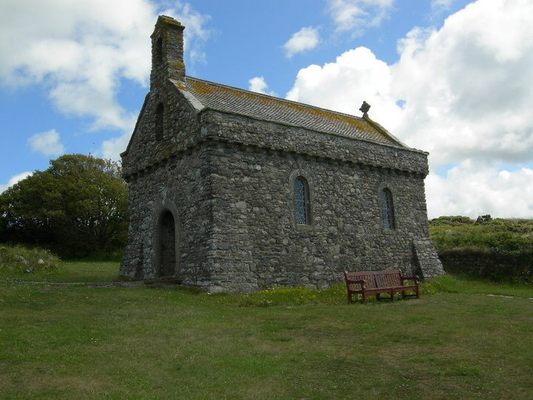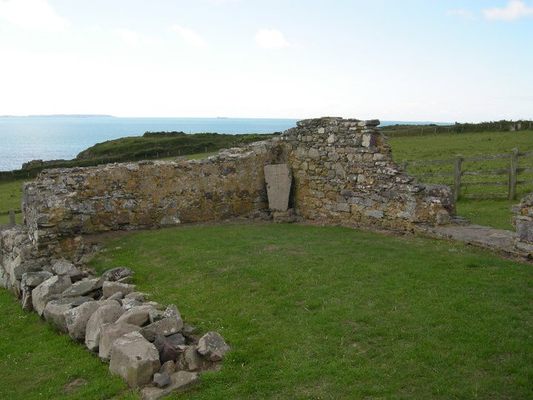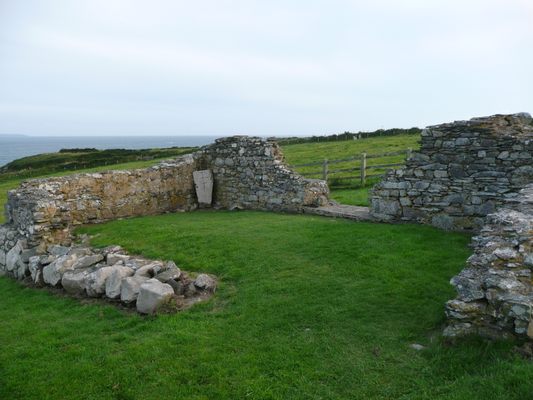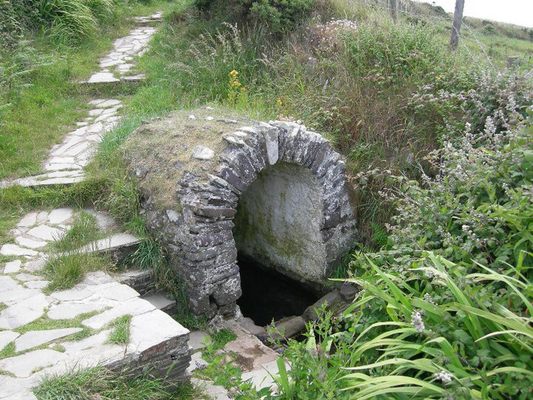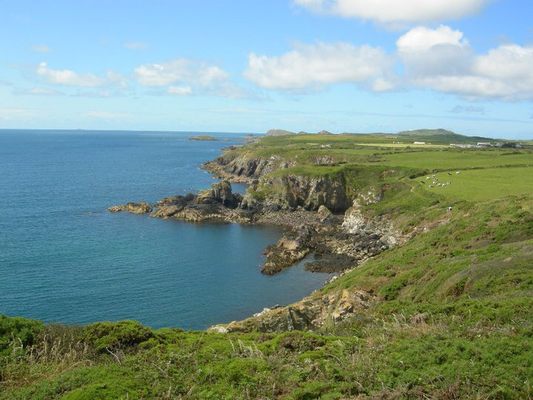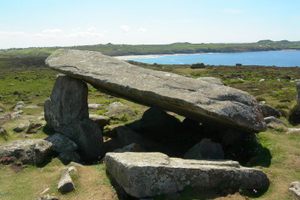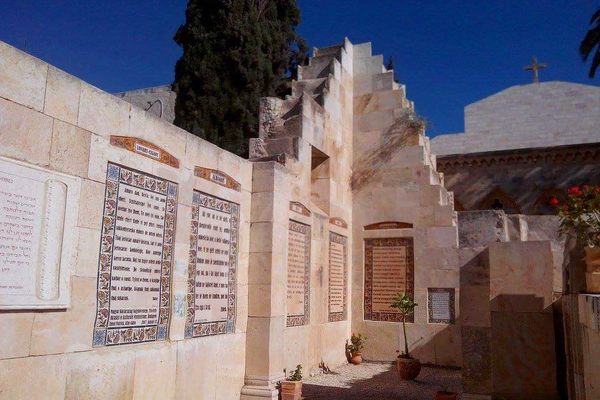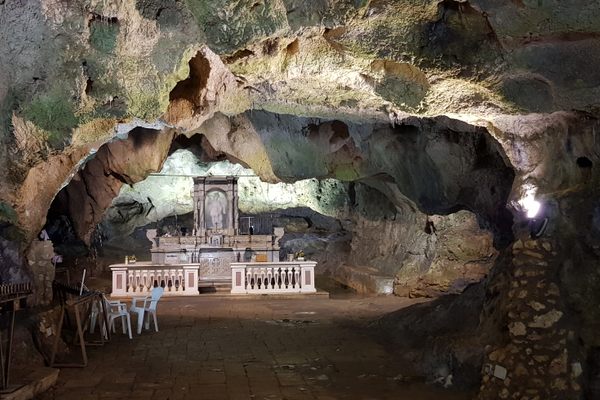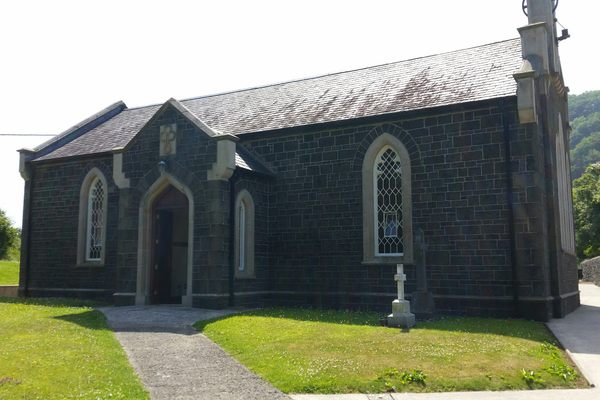About
Two chapels, a holy well, and the alleged birthplace of the patron saint of Wales can all be found in this spiritual and scenic spot along the rugged Pembrokeshire coast.
The ruins of the medieval chapel of St. Non lie along at coast near the town of St Davids, overlooking St. Non’s bay. The chapel is estimated to be one of the oldest Christian buildings in Wales. According to Christian tradition, St. Non was born here around 475, and lived in a house on the spot where the ruin now stands. Though historical records are limited, legend holds that she gave birth to a baby boy, who became the patron saint of Wales, St. David, the namesake of the town.
It is not known exactly how old the chapel is, but a clue might lie in the inscribed stone found on the site, known as St. Non's Cross. The large stone is inscribed with a cross surrounded by a circle, and now stands in one corner of the chapel ruins. The stone dates to between the 7th and 9th centuries. However, there is no evidence that the stone came from the site.
Next to the ruins, there is yet another religious relic, St. Non’s holy well, which was thought to have healing properties. The sacred well is said to have sprung up during a thunderstorm when St. Non gave birth to St. David around 500 CE. The grotto is covered by a stone arch and marked with a small shrine.
In 1943, a modern chapel was built on this spiritual site, near the original chapel. Called the Chapel of Our Lady and St. Non. Its dimensions are supposed to match those of the original. It is well worth a visit inside the serene and tranquil space, in particular to see the stained glass windows representing St. Non and St. David, among others.
Related Tags
Know Before You Go
Located just off the Pembrokeshire Coastal Path, and within a mile of the centre of St Davids. Signs lead to the chapel from Goat Street.
The site is run by Welsh Heritage and open to visitors 24/7.
Behind the modern chapel is St Non's Retreat, a religious retreat center and sanctuary.
There is parking at the religious retreat, which has views over the chapel. A smooth path leads down to the well and the shrine. To get to the chapel requires navigation of a kissing gate, a grassy path and a gate.
Published
September 14, 2018
